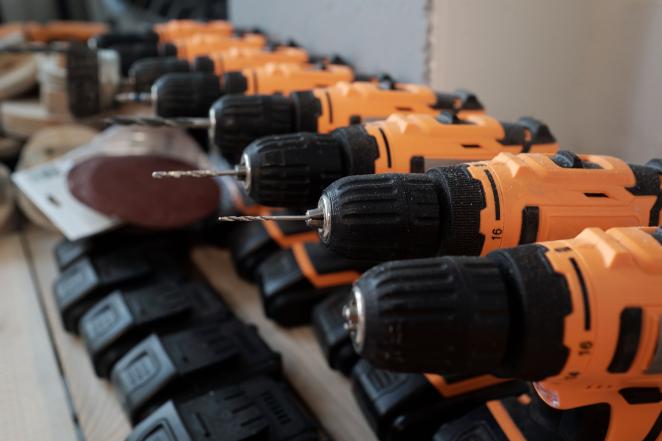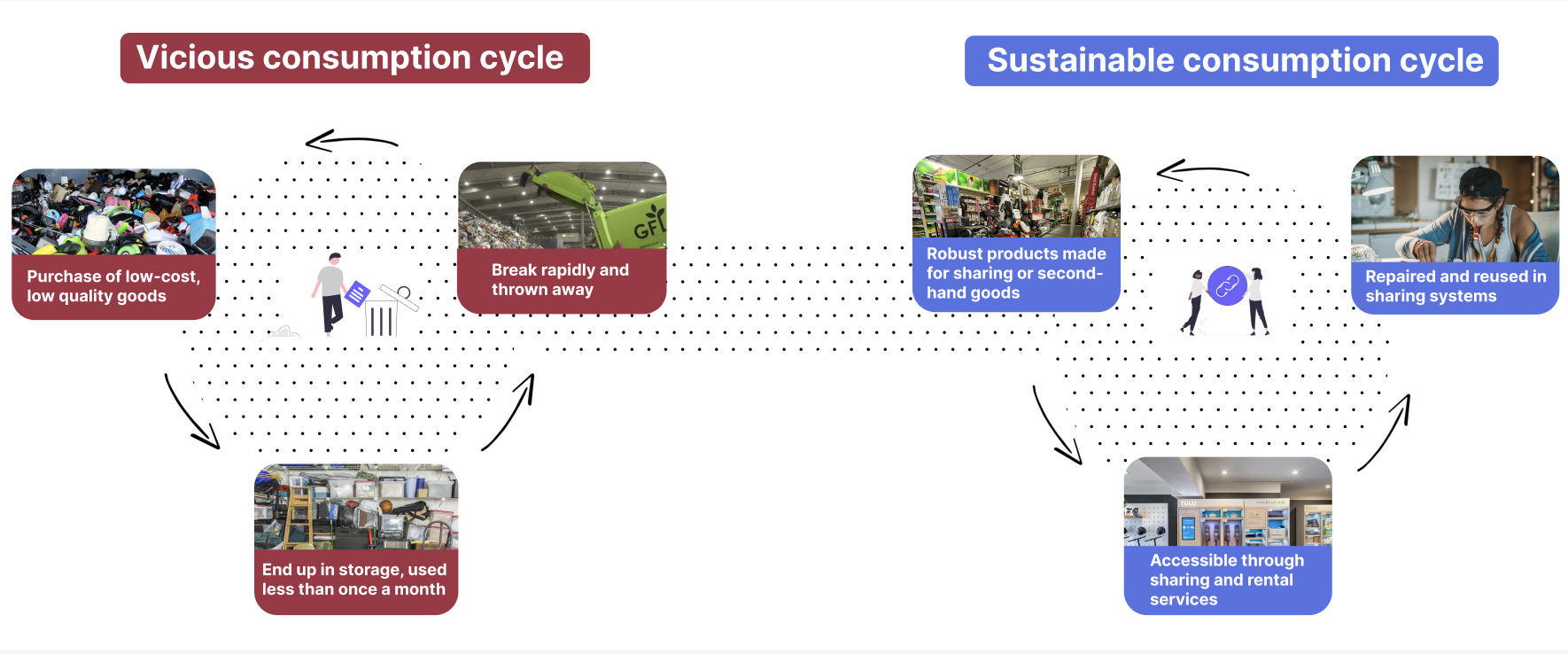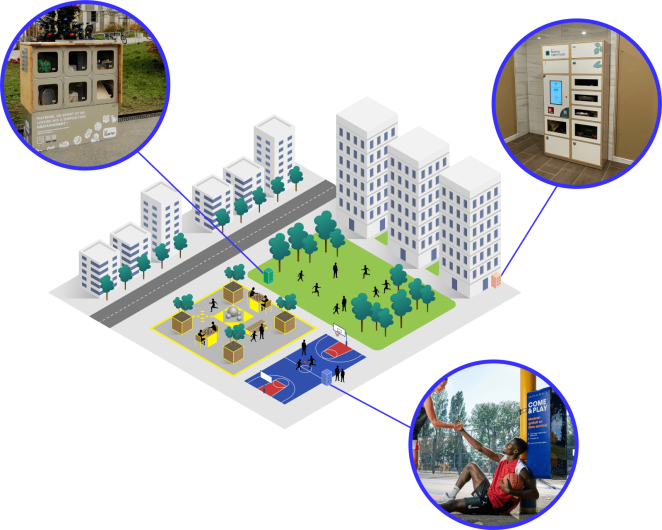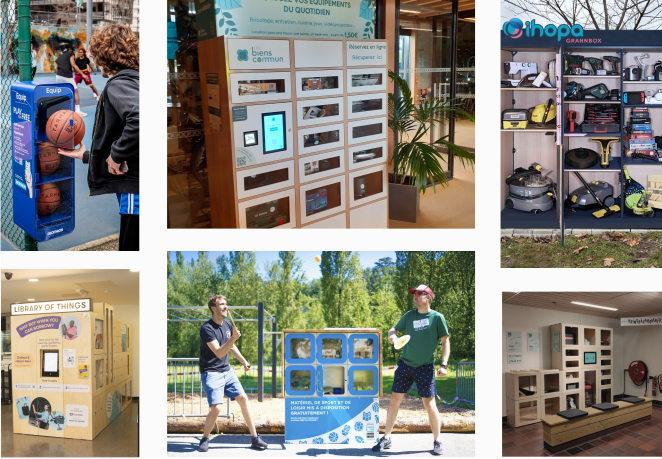
Our consumption model is broken.
The average European household owns more than 10.000 goods, 80% of which are used less than 3 times per year. The average drill is only used for 12 minutes in its entire lifetime, and a vacuum cleaner goes unused for 98% of its entire lifespan. These items take huge amounts of energy and raw materials to produce. Yet when our only option is to buy them, these objects sit on shelves, underused and gathering dust in every flat, house and office across Europe.
The sharing economy has the power to change this consumption paradigm. Instead of the vicious cycle of buying (often low-quality) goods that end up in closets and are quickly discarded, we can create a sustainable consumption cycle. This cycle emphasises sharing or renting durable products that are easily accessible to everyone through various access services and can be locally repaired and reused.
The Vicious and Sustainable Consumption Cycles


Sharing stations: the infrastructure for a sharing revolution
Sharing stations are a new form of infrastructure enabling citizens to engage in the sharing economies. A sharing station is a self-service locker that holds goods for sharing in residential buildings, public spaces, businesses, etc, making it easy to access goods where they are needed.
Similar to shared bike systems, a user selects and reserves the goods on their phone, collecting it and putting the goods back into the station after use. Access to these goods is shared by multiple users, who can rent the items only when they need them.
Sharing stations have the power to make the access economy more convenient, visible and fun in cities. Compared to existing solutions, they provide a simple, reliable and cost-efficient service to access goods for a short amount of time in the city.

Digital Kiosks is preparing cities for the large-scale deployment of sharing stations
A European-wide alliance of municipalities, housing providers, research organisations, business support organisations, and European networks has united to accelerate the use of sharing stations across Europe.
Digital Kiosks partners will co-create, test, and evaluate new use cases, operating and business models for sharing stations. Funded by the Interreg North Sea programme, the €3.66m initiative is the first Europe-wide collaboration to build local sharing ecosystems through the co-creation, testing and evaluation of sharing stations to drive local sharing economy strategies for cities and housing associations.

Over the next three years, the Digital Kiosks initiative will:
- Deploy 22 sharing stations in seven countries (France, Belgium, Germany, the Netherlands, Sweden, Denmark and Norway), tested by at least 5,000 end-users throughout the project.
- Produce a Sharing Station Toolkit: a step by step implementation guide that supports any municipalities and interested organisations to successfully deploy their own pilot sharing stations.
- Design a Digital Kiosks Innovation Framework: a guideline document supporting the sustainable large-scale deployment of sharing stations.
- Grow the Access Economy Alliance: a network of cities, startups and circular economy researchers working together to support Europe's transition to a circular economy through the expansion of sharing services for everyday goods. This includes sharing stations alongside other sharing solutions such as peer-to-peer apps and libraries of things. This network was born out of the Digital Kiosks project to help advance its mission further.

Meet the partners driving the Digital Kiosks project forward
Funded by the EU Interreg North Sea Programme, Digital Kiosks supports the following organisations to help transform sharing stations from little-known concept available only in select locations across Europe to mainstream service available and accessible to all.
- The municipalities of Saint-Quentin (France), theWandsbek District of the City of Hamburg (Germany), Amersfoort (Netherlands), Sint-Niklaas (Belgium), Vesthimmerland (Denmark) and Bergen (Norway) will each deploy two to three sharing stations across a variety of indoor and outdoor public spaces.
- The second-hand and repair shop Kringwinkel will pilot two sharing stations at two of its Antwerp stores in Belgium.
- The housing provider Familjebostäder will test and deploy three sharing stations across its properties in Gothenburg, Sweden.
- Hogeschool Utrecht and Ghent University will evaluate and assist pilot progress before developing frameworks to assist their scale-up.
Digital Kiosks is an Interreg North Sea project, co-funded by the European Union. 60% of the project is funded by the European Regional Development Fund.
Project start: May 2024